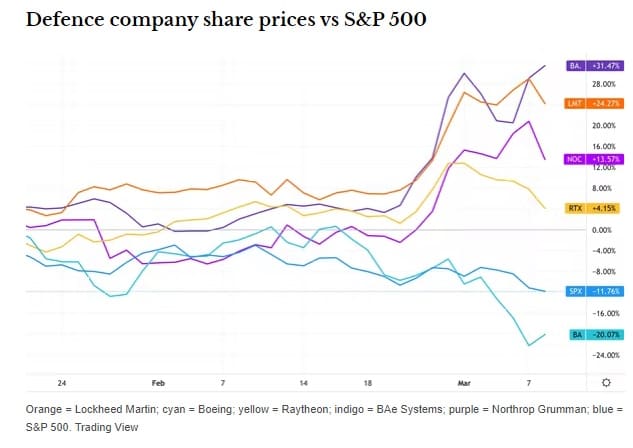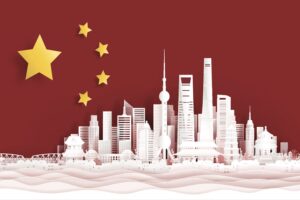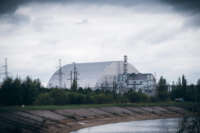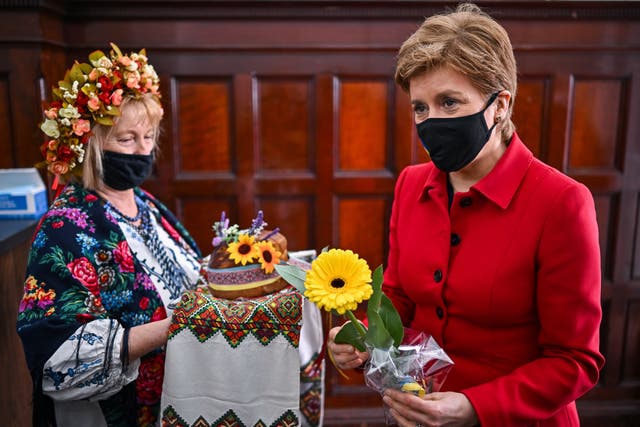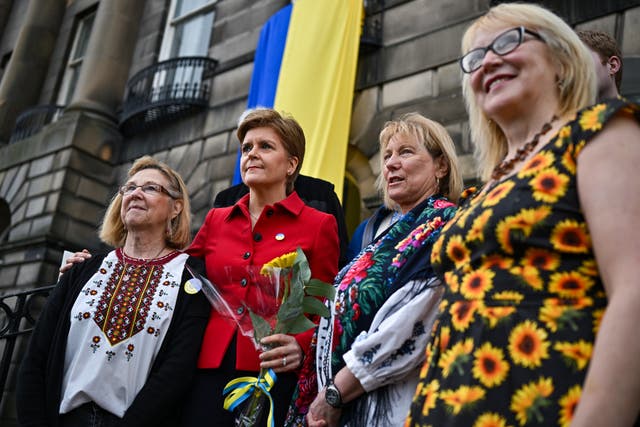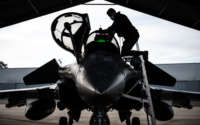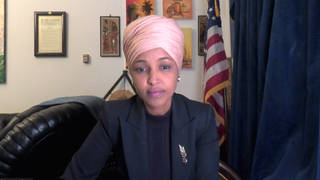
Let us begin a conversation in response to what currently qualifies as the most profound question, the one that needs most urgently to be addressed if we are to have any chance of understanding what we conveniently refer to as the “Ukraine crisis.” This is, more accurately, a planetary crisis—close in magnitude to the near-certainty of species extinction within the next century, but in some ways ahead of secondary catastrophes such as the obscene, raging inequality between peoples and nations unleashed by President Ronald Reagan and UK Prime Minister Margaret Thatcher in the early 1980s, and the global conglomerations of immense corporate and plutocratic power.
Why is it, then, that the three most important power alliances of the Western and Eurasian worlds—North America, led by the United States alongside its “Trudeauesque” poodle and with the problematic connivance of Mexico’s López Obrador; the European Union and post-Brexit UK; and the Russian Federation, in wobbly alliance with China—consider it worthwhile to suffer intensification of the risks of nuclear annihilation? This, in the face of an abundance of routes available for peaceful settlement, given a minimum of goodwill and genuine humanitarian concern?
In the case of Russia, we know very well what these reasons are because Russia has told us—clearly, consistently, loudly, and transparently—for more than 15 years. First and foremost, Russia resents the West’s violation of its unmistakable and supremely important pledge to President Gorbachev in 1990 that the power of NATO would not move one further inch eastward. Secretary of State James Baker gave this commitment at least three times on February 9 that year. This was in return for Russian acquiescence to the tragic error of German reunification, paving the way for an accelerating renaissance of an aggressively militarized and potentially neo-Nazi European hegemon.
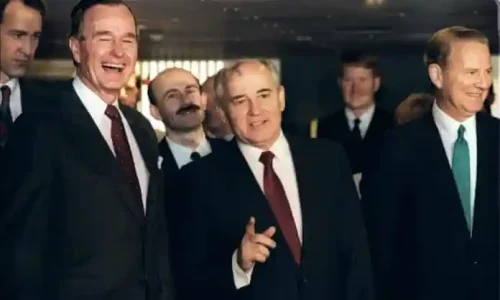 President George H. W. Bush (left) with the Soviet leader, Mikhail Gorbachev, and U.S. Secretary of State James Baker (right) in 1989. (Credit: theguardian.com)
President George H. W. Bush (left) with the Soviet leader, Mikhail Gorbachev, and U.S. Secretary of State James Baker (right) in 1989. (Credit: theguardian.com)
Yet in place of the 16 members of NATO that existed in 1990, we today have 30, and Ukraine is more and more desperately knocking on the door, conceivably to be followed by Georgia, Finland and Sweden. Current U.S. President Joe Biden, whose son enjoyed a senior place on the board of Ukraine energy giant Burisma, played a key role in that process of enlargement. The U.S. and Russia possess more than 90% of the world’s nuclear weapons, around 4,000 each.
But the United States has deployed its weapons far closer to Russia than Russia has deployed weapons close to the U.S. (each power also has fleets of nuclear submarines: in 2018 the U.S. had 14, against Russia’s 12). The United States has positioned nuclear defense/offense capabilities close to Russian borders in countries such as Poland and Romania. There are between 160 and 240 U.S. atomic bombs in NATO countries, of which 50 to 90 are stored in Turkey, a NATO member. Britain (225) and France (300) have their own sizeable nuclear arsenals.
 (Source: atlanticcouncil.org)
(Source: atlanticcouncil.org)
Although it is commonly presumed that a nuclear exchange would quickly move from incremental (if there is any moderation at all) to massive, assessments as to how a nuclear war would actually pan out are extremely complicated for both technological and geopolitical reasons. It is not beyond comprehension that a conflict might be confined to so-called low-yield nuclear bombs or mini-nukes. Nor is it at all certain that nuclear weapons will all work as they are supposed to (in fact, it is reasonable to presume they will not). Many uncertainties attend the newest generation of hypersonic missiles. And the functionality of so-called missile defense systems is perhaps most of all in question.
In addition, there is the issue of the weaponization of nuclear reactors, which is to say their conversion into weapons by missile or other form of strike, whether intentional or otherwise. There are 15 reactors in Ukraine, and another 123 in Europe. The U.S. has 93, Russia 38. Not least is the danger of nuclear accident, which almost certainly increases in the context of accelerating tensions between countries at least one of which possesses nuclear weapons or countries that can strike the nuclear facilities or reactors of other countries. There have been at least a dozen or so near misses since the U.S. dropped nuclear weapons on Hiroshima and Nagasaki in 1945.
Although their deliberate use by the United States that year is the only time that nuclear weapons have actually been fired in conflict, there have been many instances in which the use of nuclear weapons has been seriously considered. Peter Kuznick and Oliver Stone, in their book The Untold History of the United States, relate several instances in which U.S. presidents have given serious consideration to their use. This featured in Winston Churchill’s Operation Unthinkable, formulated within weeks of Hiroshima and Nagasaki. It contemplated a nuclear strike against Soviet Russia.
The Pentagon developed at least nine such first-strike nuclear war plans before the Soviets tested their first atomic bomb in 1949. The 1949 Dropshot plan envisaged 300 nuclear bombs and 20,000 tons of conventional bombs on 200 targets in 100 urban areas, including Moscow and Leningrad (St. Petersburg). Fortunately, the U.S. did not have sufficient weaponry for the purpose at that time.
 (Source: express.co.uk)
(Source: express.co.uk)
In the United States and its allies, Russia confronts an adversary which is the only country ever to have used nuclear weapons on another, although this made little concrete difference to the outcome of the Second World War. This is also an adversary which has many times since considered using nuclear weapons again, which tolerates the acquisition of nuclear weapons by its closest allies (e.g., Britain, France, Israel) and bitterly opposes even the faintest possibility of their acquisition by its opponents (e.g., North Korea and Iran).
It is an adversary which fails to keep even its most important promises (e.g., about not allowing NATO to expand), a country which abrogates important treaties (as did Bush in abrogating the ABM treaty in 2002), and which has crowned itself as the rightful hegemon, entitled to crush any power, global or regional, that would dare challenge its hegemonic status (as in the “Wolfowitz doctrine” 1992, progenitor of the Bush doctrine in 2002 by which the U.S. entitles itself to preemptive war).
 Paul Wolfowitz (Source: geopoliticsca.ru)
Paul Wolfowitz (Source: geopoliticsca.ru)
The U.S.’s credibility in international relations is profoundly undermined by: a long history of invasions and occupations of other powers—most egregiously, perhaps, in the case of Afghanistan 2001-2021, or that of Iraq (2003-2021), which can be counted along with many dozens of other instances since World War Two; overt and covert military interventions, with or without the consent of legitimate authorities, often reckless and cruel; fomenting of regime-change “color revolutions” as in Ukraine 2004 and 2014; and universal meddling with elections and political processes as in the activities of organizations such as Cambridge Analytica, and its parent Strategic Communications Limited, and the National Endowment for Democracy.
Not least is its equally long-established history of lying, just about everything, but particularly in matters of war. The Pentagon Papers, exposed by Daniel Ellsberg in 1971 with respect to the Vietnam War, or the so-called Afghanistan Papers, gathered into book form by Craig Whitlock in 2021, should be sufficient cause for considerable alarm in this respect.
There is a context here of a profound U.S.-led, multi-media and multi-targeted anti-Russia propaganda campaign that dates to the accession to the Russian presidency of Vladimir Putin in 1999-2000. It builds on previous relentless Cold War propaganda against the Soviet Union (which had us all thinking this titanic struggle was all about capitalism versus communism when it was really just about who could steal the most from the developing world), and on an even more distant anti-Russian campaign stretching back at least as far as the Crimean War of 1853-56—all chronicled by Gerald Sussmann, among others, in 2020.
 (Source: Russia-now.com)
(Source: Russia-now.com)
To this must now be added recent unfounded or presumptive anti-Russian harassment regarding an incessant and unlikely litany of all manner of accusations. These include the shooting down of MH17 in 2014; the attempted assassination of Sergei Skripal in 2018; purported collusion with Syrian President Assad over the use of chemical weapons; and, the most dramatic fable of all, alleged Russian hacking of DNC/DCCC servers and interference in the 2016 U.S. elections.
Russia has had every reason for deep distrust of the United States and its NATO and European allies. In addition, as I have chronicled elsewhere, we must take account of US/EU/NATO abetment to the illegal Euromaidan coup d’état of 2014 that was staged against a democratically elected president in 2014, just months away from scheduled elections, and whose muscle was provided by long-established Ukrainian neo-Nazi movements implicated in the assassinations of hundreds of protestors in Kiev and Odessa. To secure “legitimacy” and to stuff the coup legislature with their own people, the new leaders were obliged to ban the country’s major political parties, including the Party of the Regions and the Communist Party.
 Scene from the 2014 Euromaidan coup. (Source: inquiriesjournal.com)
Scene from the 2014 Euromaidan coup. (Source: inquiriesjournal.com)
Terrified by the anti-Russian threats of the coup leaders, the largely pro-Russian population of Crimea (including Sebastopol, Russia’s major Black Sea port, held on long-lease from Ukraine and where Russia was entitled to maintain thousands of soldiers) voted to secede from Ukraine and to seek annexation by Russia.
In the significantly pro-Russian Donbass, citizens established the independent republics of Donetsk and Luhansk. Kiev has never deigned to negotiate directly with the republics, with its own citizens, but has instead, having lost the initial war, violently subjected residents to extensive shelling (with most of the casualties taking place in the republics) and spitefully withdrawn all social security protections.
 Workers bury the dead in Slovyansk in Eastern Ukraine where mass graves were found (Source: hrw.org)
Workers bury the dead in Slovyansk in Eastern Ukraine where mass graves were found (Source: hrw.org)
The republics did not seek annexation by Russia, nor did Russia entertain annexation. Instead, Russia negotiated the Minsk agreements through the “Normandy Round” in 2015-2016. This sought and agreed to greater autonomy for Donetsk and Luhansk within Ukraine. Unwilling or unable to combat its neo-Nazi extremists, Kiev proved unable to implement Minsk, nor did the international community, other than Russia, exert pressure on Kiev to make it happen.
It would have taken unusual credulity and naivety on the part of Russian leaders not to have concluded by 2022 that the U.S. and, with some exceptions, its NATO and EU allies, were resolutely and unforgivingly hostile to Russia.
Russia, having explored the possibility of accession to NATO in the 1990s and been rejected, resigned to the provocative continuation of NATO not just beyond the collapse of the Soviet Union—the very reason for NATO’s existence—but even beyond the dissolution of the Warsaw Pact in 1991. It has been targeted close to its borders by U.S./NATO nuclear weapons that are mockingly and ludicrously described as defenses against Iran’s (non-existent) nuclear missiles, and routinely humiliated and threatened by massive annual NATO military exercises along its borders and the Black Sea.
 Members of the U.S. Marine Corps perform military exercise in (now Russian-occupied) Kherson on July 28, 2021 (Source: reuters.com)
Members of the U.S. Marine Corps perform military exercise in (now Russian-occupied) Kherson on July 28, 2021 (Source: reuters.com)
Further, it has to listen to Ukrainian President and former clown Volodymyr Zelensky plead for speedier access of Ukraine to NATO membership (extending just days ago to a demand for the placement of nuclear weapons in Ukraine) and for a no-fly zone.
As such it could have had no reasonable hope ever to be freed of the scourge of U.S./EU/NATO salivation for the break-up of the Russian Federation and unregulated freedom for Western capital, as prelude to the Western world’s ultimate confrontation with China.
Whether Russian military exercises on the Russian side of the border with Ukraine from the end of 2021 were intended from the beginning as a platform for invasion is not clear. The invasion may have been provoked by the intensification of Ukrainian army assaults against the Donbass.
Incessant, even hysterical, U.S. warnings of a Russian invasion may themselves have provoked exactly that outcome if it seemed to Russia that the United States was determined to stage any kind of provocation that would have made it impossible for Russia to resist.
Presuming, surely correctly, that the U.S./NATO has long expected and salivated for a conflict that would provide sufficient pretext for the extermination of the Russian Federation, Russia decided on a measure of preemptive advantage at a singular moment when Russia possibly enjoys nuclear superiority over the West because of its further advance (at budgets a small fraction of those enjoyed by its adversary, whose military procurement practices are rife with corruption) of hypersonic missiles and a developing alliance with China.
Putin has indicated willingness to keep moving until Russia conquers the entire territory of Ukraine. The more he can acquire, the more he can negotiate with. At the time of writing the areas under control resemble the buffer zone created by Turkey along its border with northwestern Syria and by the U.S. along Syria’s northeastern border. This seizure of the land of a sovereign nation to add to Turkish security from what it regards as the Kurdish threat, and which it is using to hold the most extremist jihadist groups that the West and others have exploited in their efforts to destabilize the Syrian government, did not occasion the squeals of indignation from Western media that we now hear from them with regard to Ukraine.
 Russian-controlled territory in Ukraine as of March 1, 2022 (Source: bbc.com)
Russian-controlled territory in Ukraine as of March 1, 2022 (Source: bbc.com)
Nor did the U.S. grab for Syria’s oil fields, and for its most fertile agricultural land, under proxy Kurdish control. And when the refugees from the U.S. wars of choice in Iraq, Syria and Libya reached the gates of Europe they were inhumanely humiliated and turned away (even allowing for a surprising measure of German generosity). Unlike whiter refugees from Ukraine into Poland and other neighbors. The oozing hypocrisy of Western self-righteousness is merely par for the course.
These considerations therefore help us to understand Russian preparedness to risk nuclear conflict. Indeed, it is possible that for Russia there is now no going back on the path to potential Armageddon. The decision to avert catastrophe has been thrown resolutely into the Western court. But what about the U.S. and its European allies? They are not in too great a hurry for the ultimate wet dream of Russian dissolution, although sooner would likely be more gratifying than later. For the moment, the conflict is well worth it, for as long as it is only Ukrainians who pay the ultimate price. Zelensky’s greatest folly has been to recklessly offer his country and its people as ground zero for World War Three.
 Volodymyr Zelensky (Source: marca.com)
Volodymyr Zelensky (Source: marca.com)
Short-term benefits for the West include a potential fillip to Joe Biden’s otherwise steep decline in domestic popularity. War has been the eternal answer to internal instability. It is too soon to say that the Ukraine crisis will help bridge the gulf between Democrats and Republicans, but there is a chance of some measure of healing, perhaps just enough to weaken the hold of the pro-Trump wing of the Republican Party.
This in turn could be deeply reassuring to the military-industrial complex (or, as Ray McGovern calls it, the MICIMATT—the military-industrial-congressional-intelligence-media-academic-think tank complex) whose distrust for Trump’s wavering on Putin provided fertile ground for the success of the Clinton campaign’s fabrication of the Russiagate saga.
Although Biden followed up on a shockingly incompetent withdrawal from Afghanistan in 2021—alongside signs of a final exit from Iraq and from Syria—with a multi-billion dollar increase in the military budget, he has since advocated a further increase of 8% in 2022-2023.
Since this is close to the rate of inflation, the weapons lobby will doubtless require another 4% or so, if they are being modest (unlikely), and a sharp increase in European tension will not only boost their cause for a further budget increase but will greatly incentivize the demand for weapons for years to come.
The bloated U.S. 17-agency Intelligence community and its underworld of private contractors will be delighted that, for the first time in a generation, their intelligence (on the Russian invasion, at least) has been perceived by many to be correct, and that, for the first time in a generation, it is not a U.S. war of choice that must be lied about. Such a glorious moment of self-righteousness will go far in the propaganda business. So long as Intelligence can manipulate and coopt corporate, plutocratic, mainstream media, the extent and depth of previous U.S. evils need never prove an obstacle to beating the drums for perpetual war. The mainstream media can be relied upon to foreshorten the narrative, pull in the context, focus on only one side, demonize and personalize. Intelligence will always help with fabrication of what counts as “real.”
The Ukraine crisis upends the energy markets in a way that puts even broader smiles on the faces of fossil-fuel bosses. The forced closure of Russia’s Nord Stream 2 natural gas pipeline from Russia to the rest of Europe will create an involuntary European appetite for (more expensive) U.S. LNG exports.
 (Source: nationalworld.com)
(Source: nationalworld.com)
The brunt of energy price increases will be suffered more by Europe than by the United States. Combined with growing European dependence on the U.S., the impoverishment of Europe is to the U.S.’s advantage, under the scope of the Wolfowitz doctrine, and sustains the buffer between Russia and the continental U.S. Pressure on the U.S. to return to a policy of self-sufficiency in energy will reinvigorate public tolerance for fracking and drilling, for pipelines and spills and fires (if the world is going to end in any case.).
On the downside, from a U.S. perspective, higher energy prices will boost the Russian economy and sustain its servicing of Chinese and other Asian markets, provided they can work around U.S. sanctions (they will).
Ukraine is a test of Chinese resolve in its move toward Russia, reminding it of the economic threats to Chinese interests from U.S. sanctions in countries of the Belt and Road initiative. But this will not be sufficient to shift China from what must surely be its conclusion that the United States is irredeemably wedded to the vision of a perpetually unipolar U.S. world.
In Europe, the crisis will help Conservative Prime Minister Boris Johnson escape decapitation over the embarrassment of the “Partygate” scandal. It has already enhanced President Macron’s bid to appear statesmanlike in the face of upcoming elections in April, and his ability to ward off threats from the extreme right. But mainly, the crisis will benefit Germany which, in recent years, has broken free of its punitive post-war chains not only to burnish its long-established economic primacy but to rebuild and modernize its military, and to send arms to Ukraine. The sleazy proto-fascist governments of several new East European and former Soviet Union governments will feel similarly enabled and justified.
But all these short-term outcomes notwithstanding, nobody should discount the possibility, short of a robust peace agreement, of nuclear war. If not a nuclear war, then prepare for a protracted global recession, if not depression.
The sorrowful-but-gritty public faces of Europe’s equivalent to MICIMATT—Europe’s financial, plutocratic, military and intelligence elites—are President of the European Union Ursula von der Leyen, and NATO Secretary General Jens Stoltenberg. Along with German Chancellor Olaf Scholz, and French President Emmanuel Macron, it will be their faces we need to first scrutinize for a heads-up as to whether, finally, there is to be a public climb-down in the face of Russia’s nuclear checkmate. For that, indeed, is what it appears to be.
• First published in CovertAction Magazine
The post
The Crisis in Ukraine is a Planetary Crisis Provoked by the U.S. that Threatens Nuclear War first appeared on
Dissident Voice.
This post was originally published on Dissident Voice.
